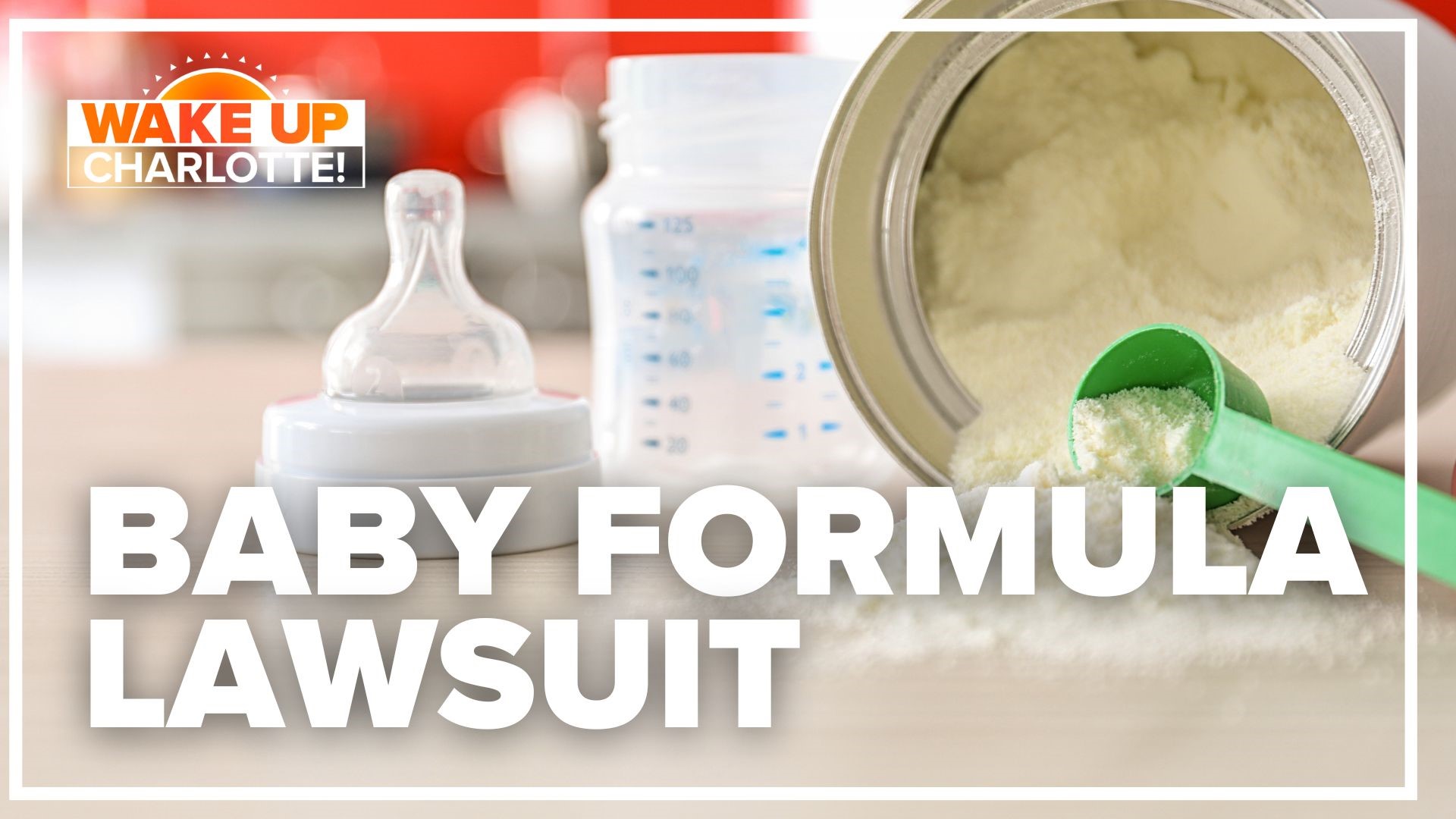CHARLOTTE, N.C. — A Charlotte mother has filed a lawsuit against baby formula giant Abbott, claiming the company has misled parents into thinking its Similac baby formula is safe for use with premature babies.
Brianna Anthony claims in her suit she gave birth to her daughter Reign in June 2021 at only 23 weeks. Anthony said Reign was relatively healthy for a baby born so prematurely but still required a feeding tube and breathing machine to help. Eventually, a doctor reportedly told Anthony they would be switching Reign over to Similac, but Anthony said she protested the idea because of her own research. However, she said the doctor went ahead and used Similac.
The lawsuit states Reign eventually became sick and passed away in September 2021, just days after her body started retaining fluid and her organs shut down.
Anthony's suit said Reign developed necrotizing enterocolitis or NEC. According to the Children's Hospital of Los Angeles, it's caused by bacteria invading the intestine wall, which can cause an infection and inflammation that destroys the wall. NEC can lead to death in premature infants.
The lawsuit cites several studies claiming baby formulas based on cow's milk, like Abbott's Similac, were more likely to cause NEC in premature infants than a diet using human breast milk. The suit also cites guidance several major medical authorities, from the World Health Organization to the U.S. Surgeon General, against giving pre-term infants cow's milk-based formula.
Read the lawsuit below:
Anthony's lawsuit goes on to claim Abbott's marketing misled parents, doctors and hospitals to think Similac and other cow's milk-based formulas were safe for premature babies, didn't provide enough risk warnings and had a duty to provide those warnings. Her attorneys have requested a jury trial to determine damages.
Abbott provided the following response to WCNC Charlotte:
We are sorry to hear this and our hearts go out to this family.
Abbott has spent decades researching, developing, testing and producing formulas and fortifiers for premature infants, and countless infants have benefitted tremendously from these products. These allegations are without merit, advancing a theory promoted by plaintiffs’ lawyers rather than the medical community, which considers these products part of the standard of care for premature infants.
WCNC Charlotte spoke with trial lawyer Roy Willey IV with the Anastapoulo Law Firm. Willey is on a team of attorneys across multiple states where similar suits have been filed and said Abbott's claim Anthony's suit doesn't have merit doesn't add up.
"The studies that we've cited in this complaint, and others, make it quite clear that [Similac] is not safe," he said.
Willey said Abbott isn't considering safety, but rather the bottom line. He estimates about 15 million babies globally are born pre-term, giving a sizeable market for Abbott and other formula makers to reach. He also balked at the idea that lawyers were throwing out a theory about Reign's death.
"The World Health Organization is not an organization made up of plaintiff's lawyers, nor are any of the studies that we've cited in the complaint conducted by plaintiff's lawyers," he said. "And I think quite clearly when you review those studies, the science is clear that this is not safe."
Willey also said Abbott's marketing tactics helped make Similac and other cow's milk-based formulas a standard of care for pre-term infants; the lawsuit noted Anthony was told as much by the doctor who put Reign on Similac. He also said other U.S. formula giants like Enfamil do the same thing and believes the court process will show Abbott knew about the studies warning against using such formulas for pre-term babies.
Abbott has recently faced a crisis amidst a shortage of baby formula in the U.S. The company had to shut down a production plant in Michigan for several months after the federal Food and Drug Administration (FDA) found bacteria and unsanitary conditions there, and then it was shut down again after severe storms and flooding in June 2022. The plant eventually re-opened earlier in July.
The shortage of baby formula forced the federal government to import formula from other countries. The shortage also prompted President Joe Biden to invoke the Defense Production Act to speed up formula production.

